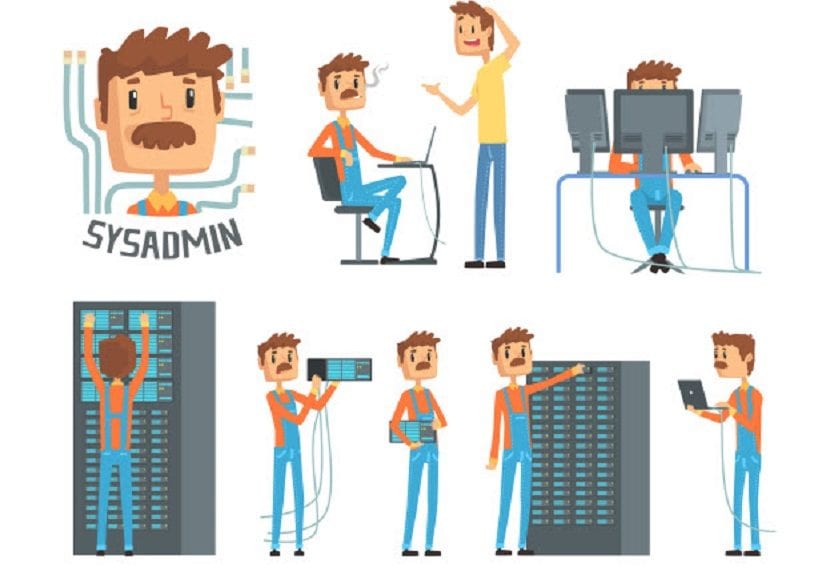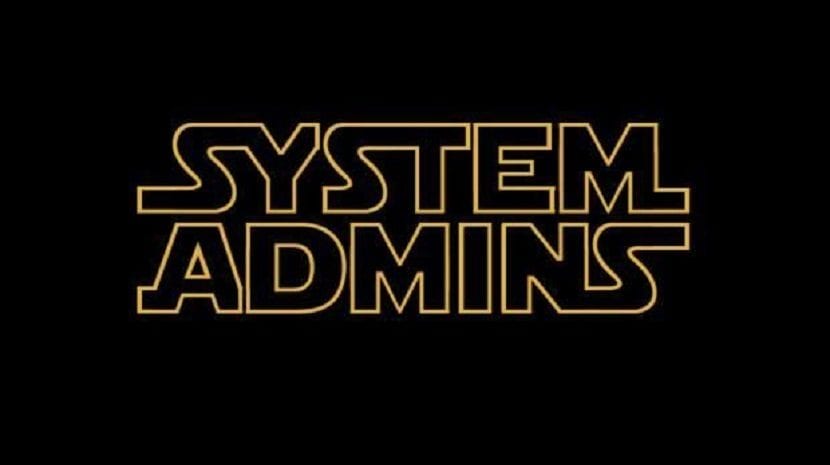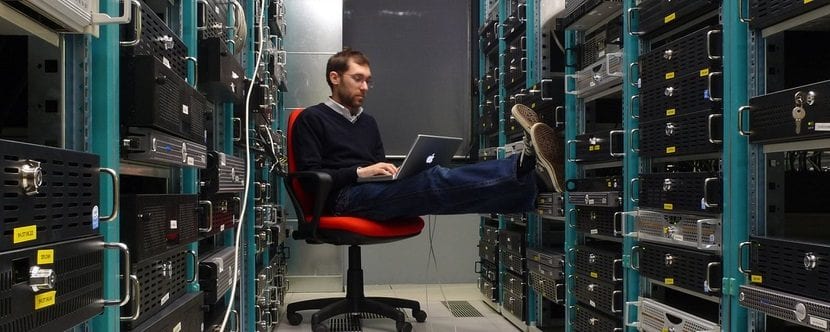
Sysadmin: The Art of Being a System and Server Administrator
A technology professional known by the short English name Sysadmin or its Spanish translation as "System and / or Server Administrator" is usually an experienced all-in-one IT Professional., whose normal day is usually full of a large number of varied activities scheduled or not, which we must carry out in an ingenious way to comply with all of them without less than availability to help solve any other last minute computer incident.
Thus, to become a good System and Server Administrator, that is, a Sysadmin with all the law, It is essential to develop and acquire certain skills and attitudes that allow them to carry out their work efficiently and effectively.

Introduction
Being a Sysadmin is something of great importance both personally and professionally, since it is a position of great weight within the field of Informatics in Organizations, so much so that even their own day they have the "Sysadmin Day" which is usually celebrated internationally on July 29 of each year, to recognize and value their outstanding work, knowledge, patience and contribution to the Companies or Institutions where they work .
A Sysadmin is usually responsible for guaranteeing the correct functioning of any technological and computer platform where he works, working tirelessly to execute the necessary activities (implementations, updates or changes) and keep the business operational. Many times with actions that tend to affect the work of others, which often causes them to become unpleasant people on the part of low-level administrative or operational workers in their organizations.
But regardless, being a Sysadmin is a very challenging and rewarding job, profession, passion, which tends to develop in the midst of a very competitive environment., which implies that he himself strives to be a comprehensive, multi-functional and multi-disciplinary staff.
In summary, being a Sysadmin is nothing more than being the person in charge or one of those responsible within an Organization, of guaranteeing the operation and maintenance of one or some System (s) or Server (s) or a part or all of a computing platform. And that Depending on the Organization where he works, he may or may not have many functions and responsibilities, which will influence his preparation, training and future experience.

Contents
Roles and Duties of a Sysadmin
In short, they can be summarized in the following on a System (s), Server (s) or Platform:
- Implement new or remove obsolete
- Make backups
- Monitor performance
- Manage configuration changes
- Operate Applications and Operating Systems
- Manage user accounts
- Monitor computer security
- Coping with failures and falls
- Meet user requirements
- Report to the direct responsible levels of the Organization
- Document the computing activities of the System and the Platform
General knowledge and extras
Although the current trend is heading towards the growing use of Cloud Technologies (Cloud Computing), this does not eliminate or threaten the work of the Sysadmin, but on the contrary substantially changes the way in which the Sysadmin usually manage the Systems, Servers and Platforms in charge.
And this more than anything is due because usually a good Sysadmin is usually also or perform functions of an Administrator of:
- Databases
- Informatic security
- Industrial
- Operating Systems (Private or Free)
Good Sysadmins usually have basic knowledge of programming or programming logic. They tend to understand very well the behavior of someone device for interconnection of networks or telecommunications and related software for the purpose of implementing and troubleshooting. They are usually good at various programming languages used for scripting or automating routine tasks like Shell, AWK, Perl, Python, among others.
Work Vision
An experienced Sysadmin should try to deal with computer incidents in such a way as to quickly and correctly diagnose them, detect the problem (cause) and repair it as soon as possible. And something very fundamental to save time and unnecessary efforts: Automate everything you can.
But to be more specific a Sysadmin must:
- Automate as much as possible, mastering the best possible languages and scripting commands to achieve converting frequent and tedious tasks into automated tasks.
- Avoid loss of information maintaining backup copies of everything essential and vital, ensuring that they are on several media at the same time, and if possible different locations
- Have a computer disaster recovery plan that they can present themselves and thus achieve a quick recovery and return as far as possible to normality.
- Ensure that the work platform is constituted in a homogeneous architecture that allows redundancy and facilitates the cloning of systems and servers effectively and efficiently.
- Ensure that the work platform has sufficient CPU, RAM and Hard Disk resources that allow the organization to grow naturally.
- Be proactive, not reactive, that is, they must anticipate the problems and the growth of the organization.
- Efficiently master the keyboard, your key combinations, the keyboard shortcuts for all your favorite applications.
- Efficiently master the command line of their respective Operating System.
- Document everything that is necessary, leaving logs, manuals, guides and tutorials available, so that in your absence the activities can continue or and the problems be corrected
- And among other things you must know Admit your mistakes and failures, Learn from their own and others' mistakes, Investigate, learn and apply what they have learned.

Conclusion
Within each Organization and within each area of it, there are always neuralgic personnel, that is, of great importance. And the Sysadmin are usually one of them both in general and in the specific, because their work usually involves being responsible for many things and having a large amount of work and responsibilities of vital importance for the business of it.
Technology, no matter how good or modern, does not work by itself as if by magic, but it needs a good Sysadmin and sometimes even a good group of them, who have the necessary aptitudes and attitudes to carry out the different activities that are entrusted to them.
If you are a Sysadmin, we hope you like this article and serve personally or you can recommend it to others so that every day they can be a better Sysadmin. In case you want to find something more about the Sysadmin in our Blog, you can try by clicking on the link «Sysadmin – DesdeLinux» or in this external link about the "Sysadmin Day".
If you have more questions about this topic, I recommend that you read the work paper related to it found in this link.
What is the real difference between a sysadmin and a devops?
Luix here is the link to the promised article on your question!
https://blog.desdelinux.net/devops-versus-sysadmin-rivales-colaboradores/
It is not a question that has a short answer, but the difference at first glance seems none. However, a DevOps is a mixture of Sysadmin and Developer whose function is precisely to eliminate the barriers between both profiles. Therefore, you must have knowledge of both the software and the infrastructure where it will be hosted. While the Sysadmin is like the highest level that an IT Specialist can reach who, in addition to Infrastructures and Processes, also knows programming without the need for him to be an expert in that area.
The truth is that the question was good and I promise to do an article about it.
Although DevOps is in the middle between Sysadmin and Developer, its main function is to automate deployments. Large companies make thousands of deployments daily and without this automation it is completely impossible to meet the needs of millions of users of these companies where a crash or a bug must be solved in minutes.
A DevOps can get closer to the work of a sysadmin, when working in the cloud using Infrastructure as a code, where you can have scripts to create the entire infrastructure of the company from scratch.
Excellent contribution. And like Luix, here is my article that talks about your contribution: https://blog.desdelinux.net/devops-versus-sysadmin-rivales-colaboradores/